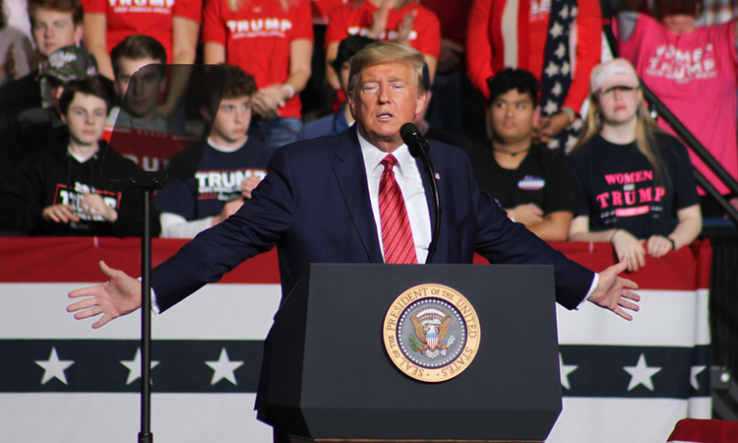
Laboratories and federal agencies using local and national advice to minimise transmission
Research institutions across the United States are taking a variety of measures to minimise the spread of the novel coronavirus that causes the Covid-19 respiratory disease, with a patchwork of travel bans, event cancellations and teleworking coming into force.
There has been a general tightening of measures since president Donald Trump signed off $8.3 billion in emergency spending on 5 March to expand his administration’s response to the virus. More than $3bn of that has been earmarked for R&D.
Many teaching institutions, including the Massachusetts Institute of Technology, have opted to cancel some classes and switch to online teaching for the rest of the semester.
Mandatory teleworking has been introduced at some research institutions where staff are able to work remotely, such as NASA’s Ames Research Center in Silicon Valley, California, where an employee tested positive for the virus.
Both teaching and research institutions have restricted travel for staff. Some, such as the University of California, have followed the US Centers for Disease Prevention and Control guidance and taken steps only against countries where there are untraceable chains of infection.
Other institutions have taken a more cautious line, such as Auburn University in Alabama, which has recalled all students studying abroad and banned all international travel on university business for students, faculty and staff.
The White House has also focused on travel restrictions. On 11 March—the day the World Health Organization decided that the spread of Covid-19 constitutes a pandemic—Trump used a televised address to the nation to announce a 30-day ban on all travel from most EU countries.
Democrat congressional leaders Nancy Pelosi and Chuck Schumer criticised Trump’s silence over how he would deal with a shortage of testing kits in the US, as they introduced a bill that would make testing free.
About two-thirds of the more than $3bn in emergency coronavirus R&D spending signed off by Trump will go to the Biomedical Advanced Research and Development Authority.
Barda has sent out a general call to companies for help developing Covid-19 treatments. It is interested in R&D and manufacturing for vaccines, therapeutics and diagnostics.
In parallel to publicly funded efforts to spur and corral the pharmaceutical industry’s response to Covid-19, the Bill and Melinda Gates Foundation has set up a therapeutics accelerator. The charity, in partnership with biomedical funder the Wellcome Trust, has allocated $125 million to speed the development of treatments.
“Ultimately, our goal with the Covid-19 Therapeutics Accelerator is to do for treatment what CEPI [the Coalition for Epidemic Preparedness Innovations] does for vaccines,” chief executive Mark Suzman said in a blog post. CEPI is an international public-private coalition that supports vaccine innovation.
More academic events in the US have been cancelled as Covid-19 has spread. On 9 March the American Chemical Society cancelled its annual meeting, which was scheduled to begin on 22 March in Philadelphia.
Many institutions have cancelled smaller meetings on their campuses. Woods Hole Oceanographic Institution in Massachusetts, for example, has asked that “events with more than 15 in-person participants should be virtualised, postponed, or cancelled,” starting 16 March.
A version of this article also appeared in Research Europe